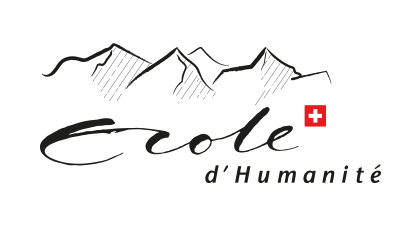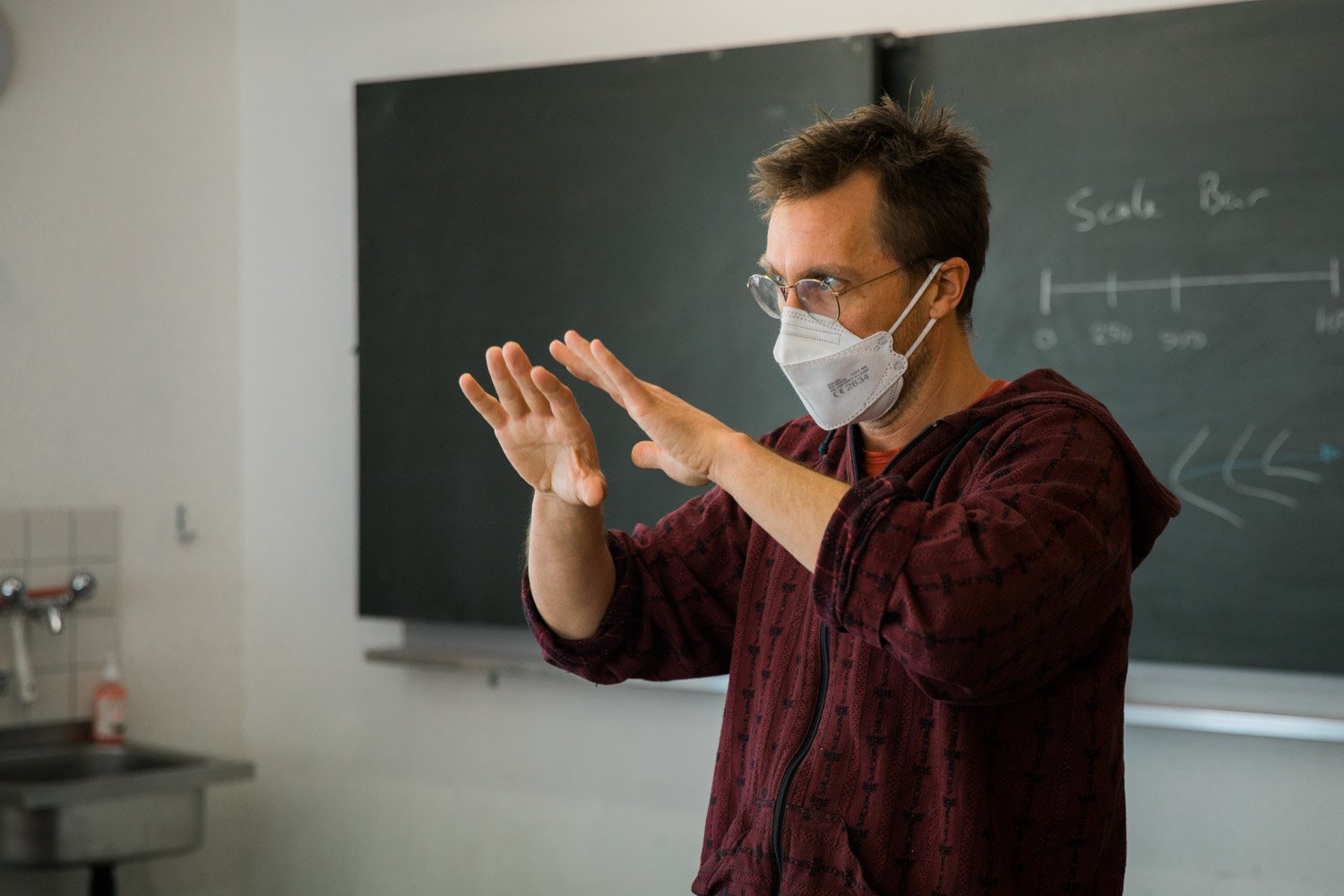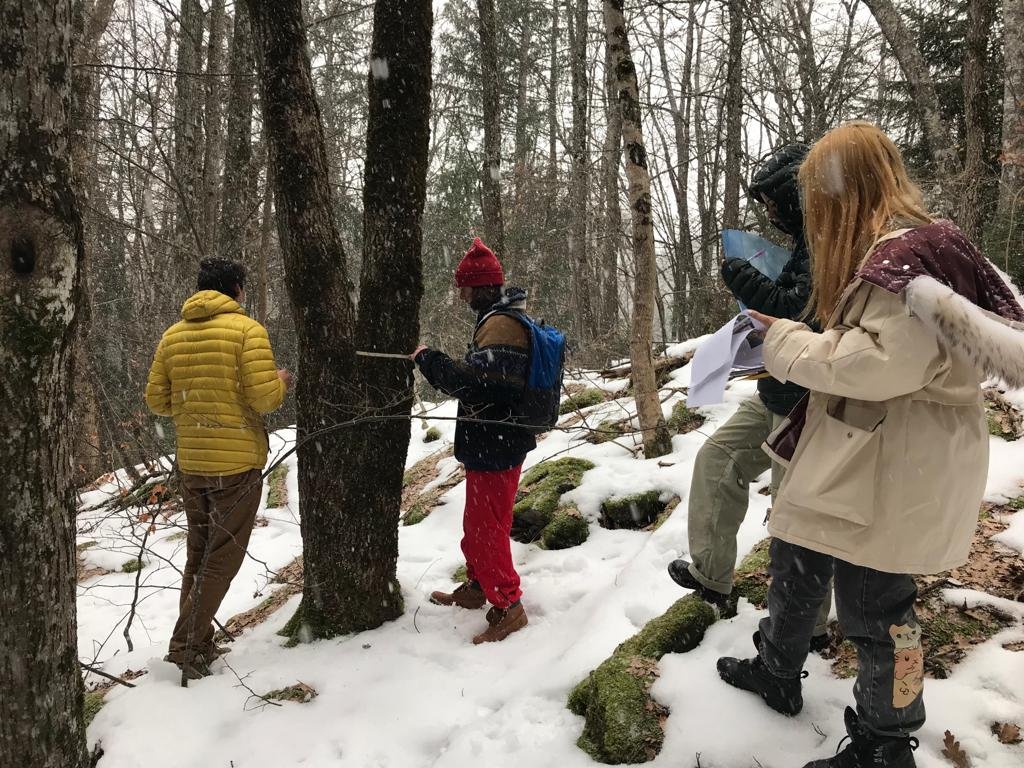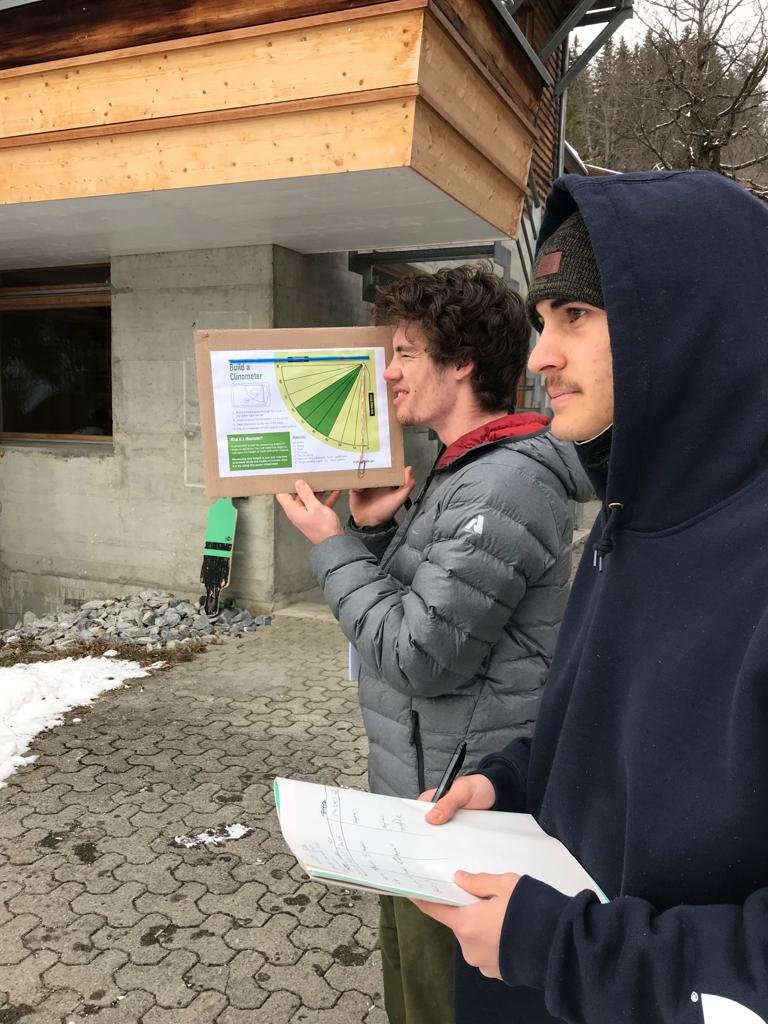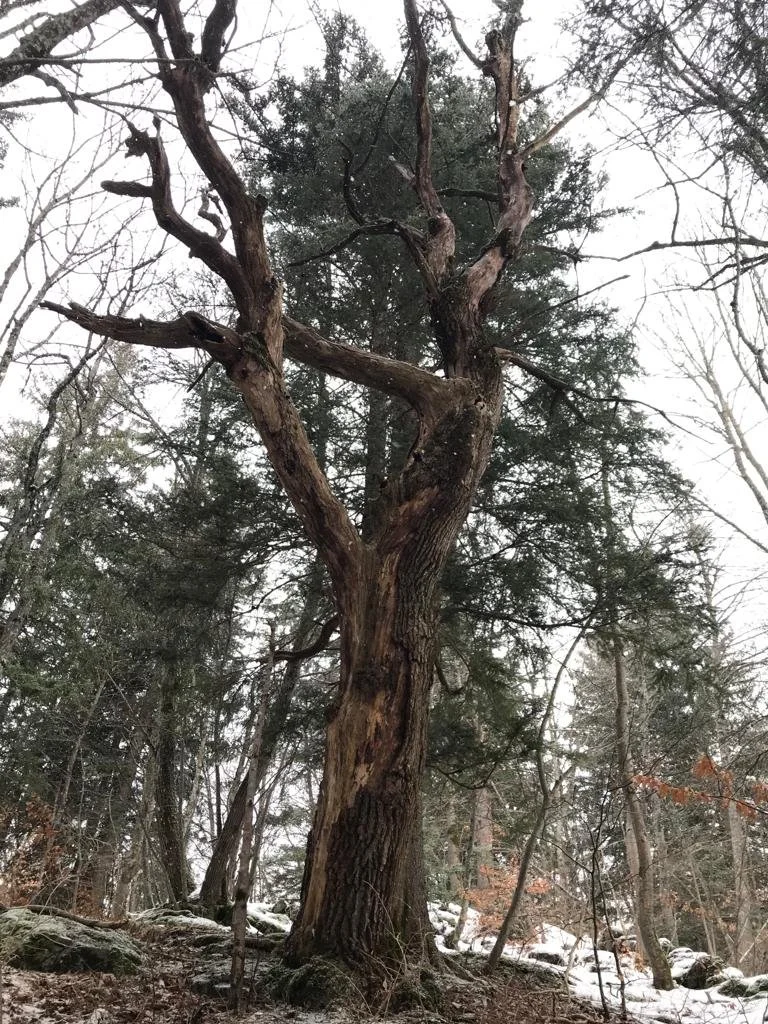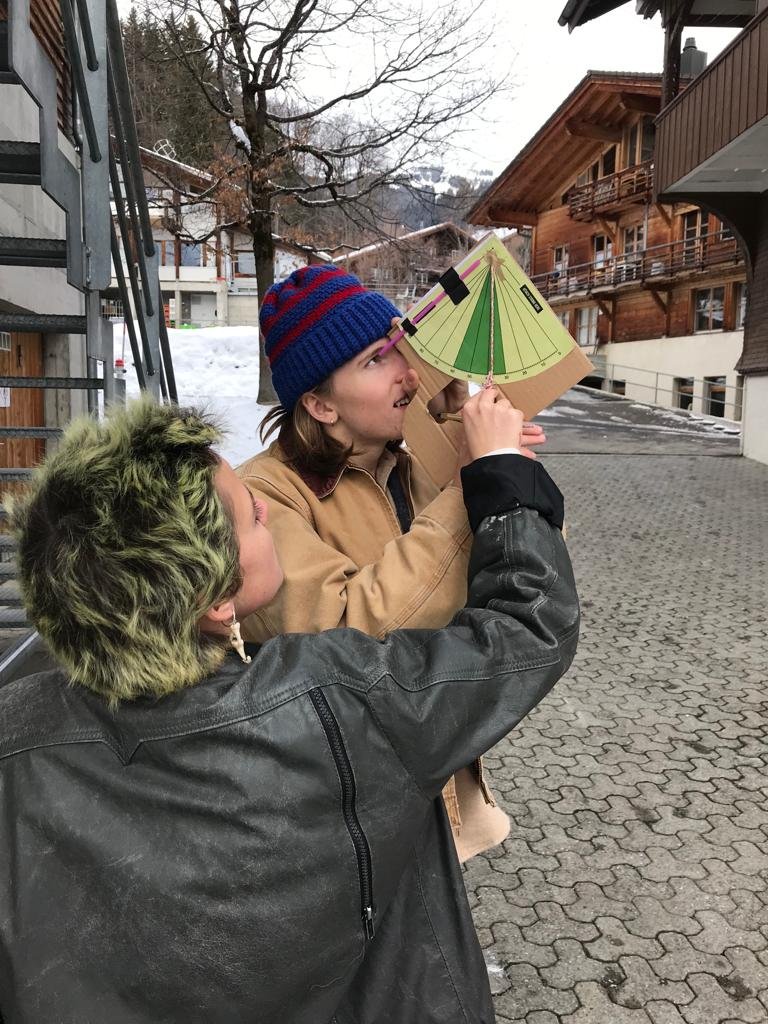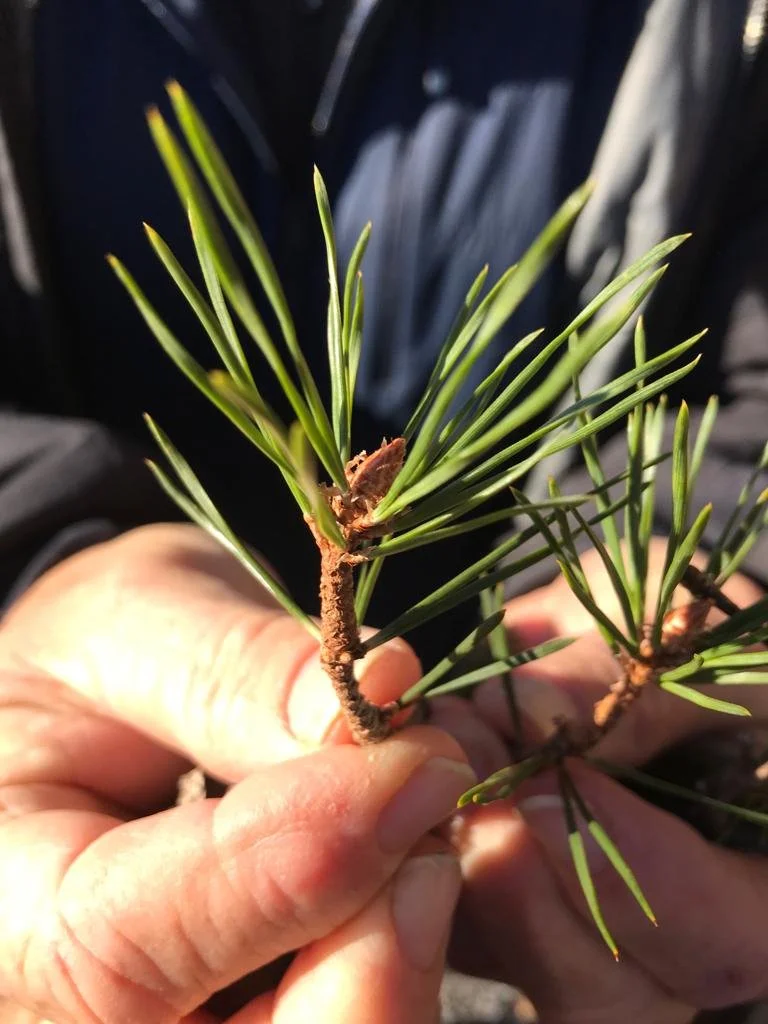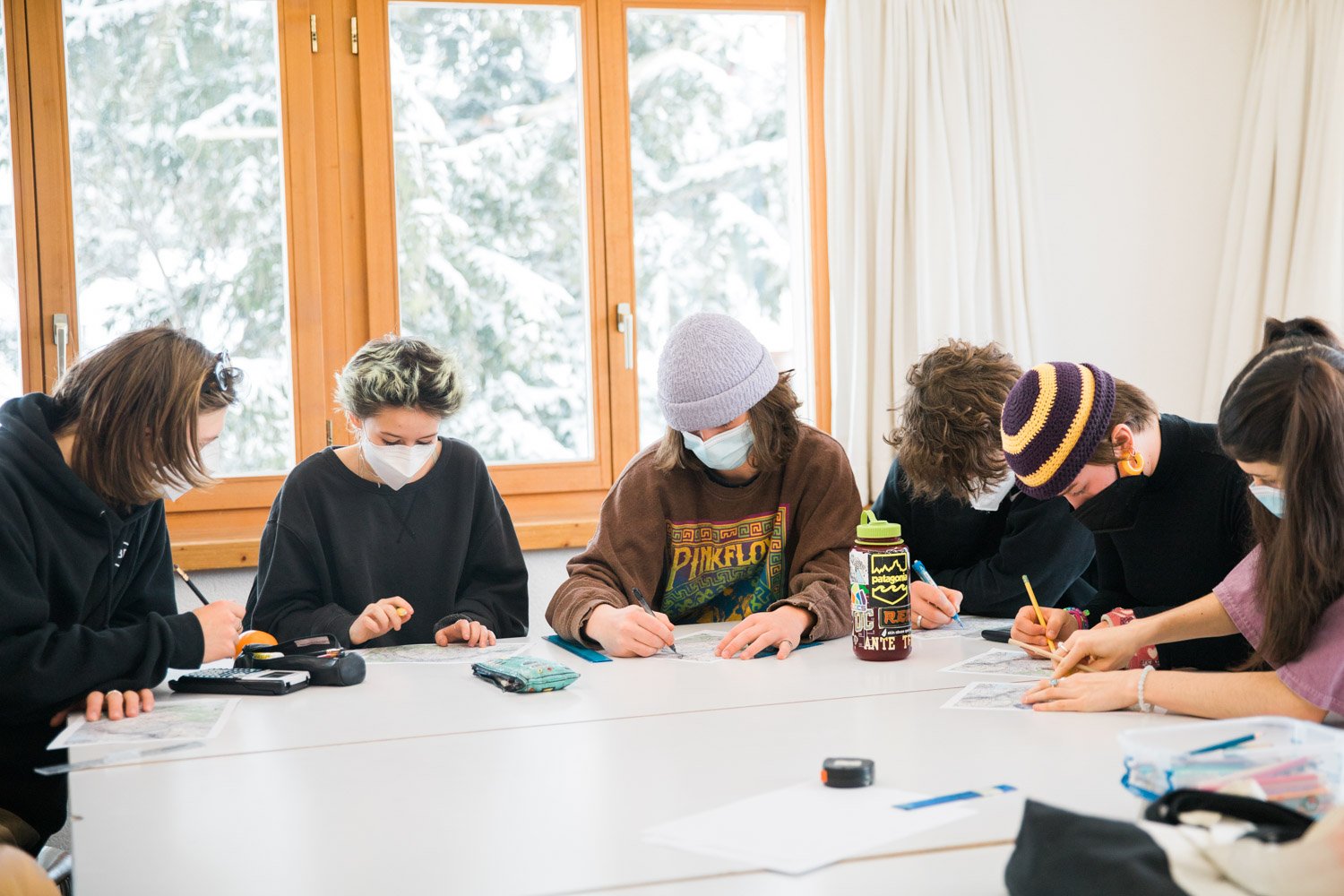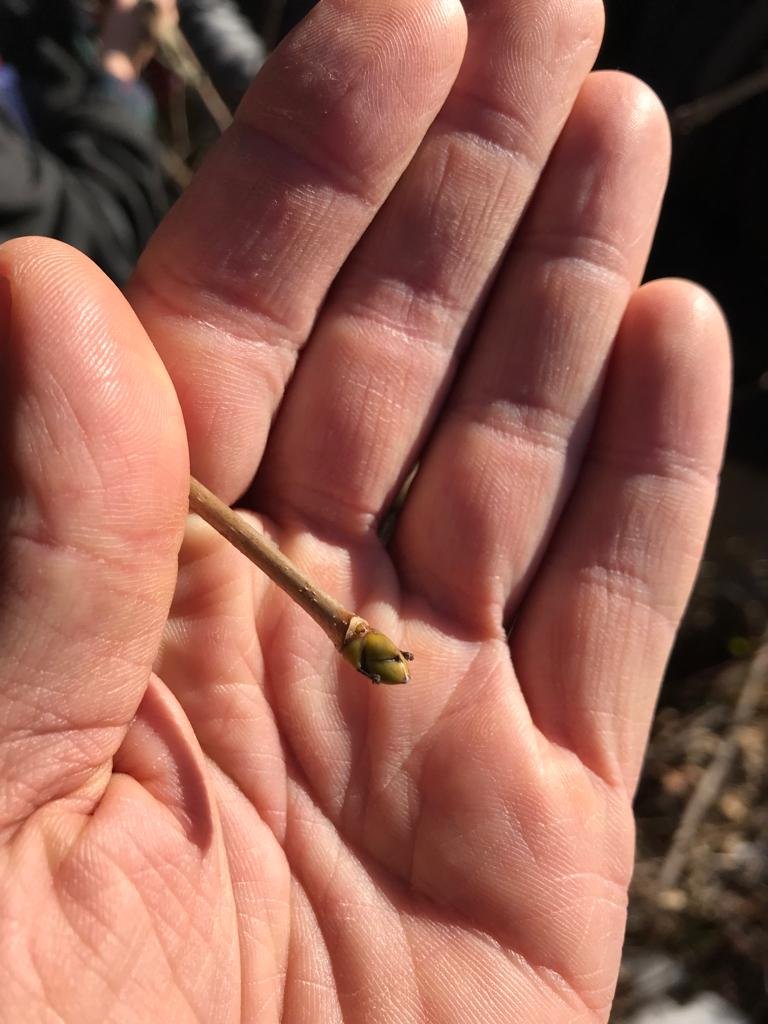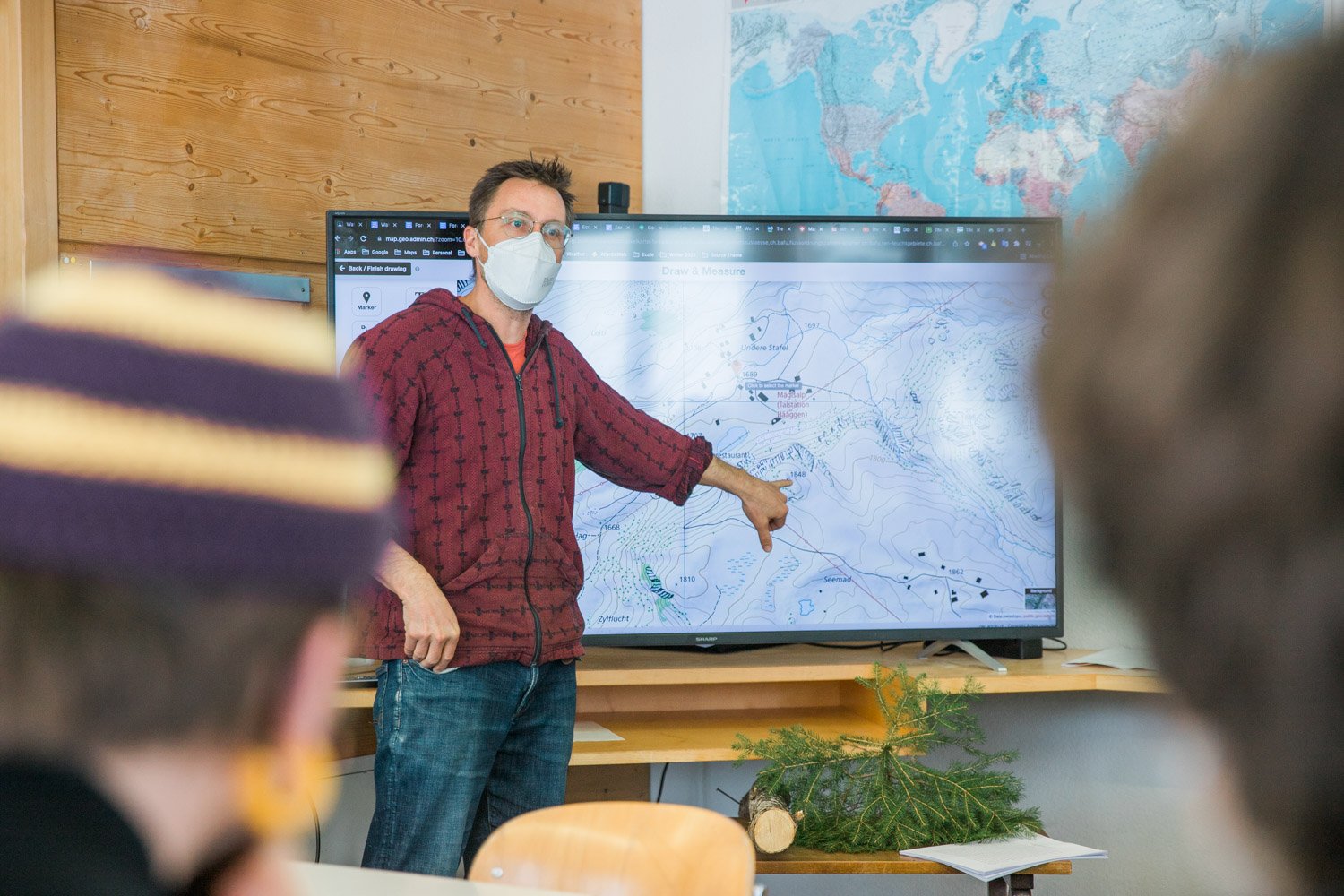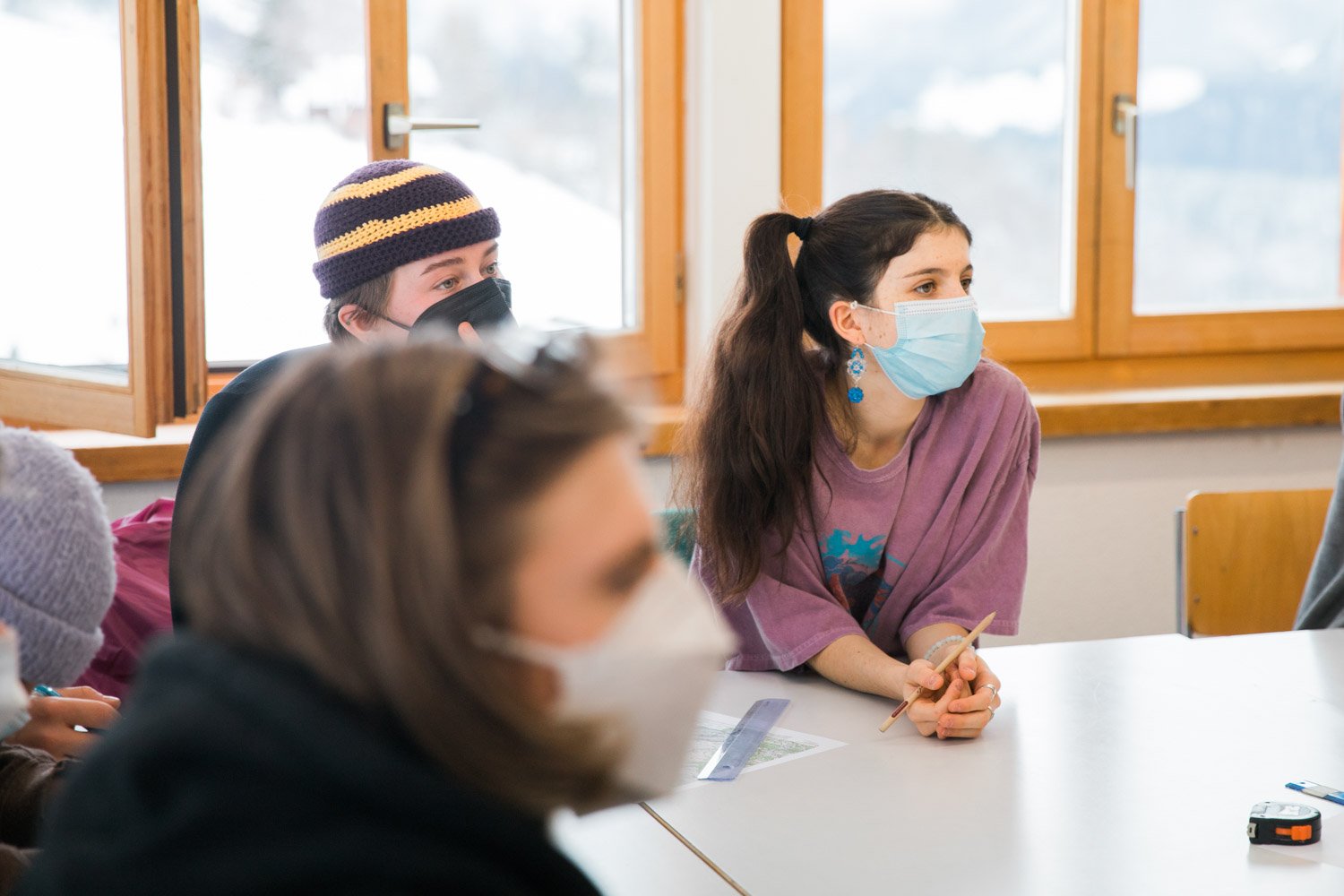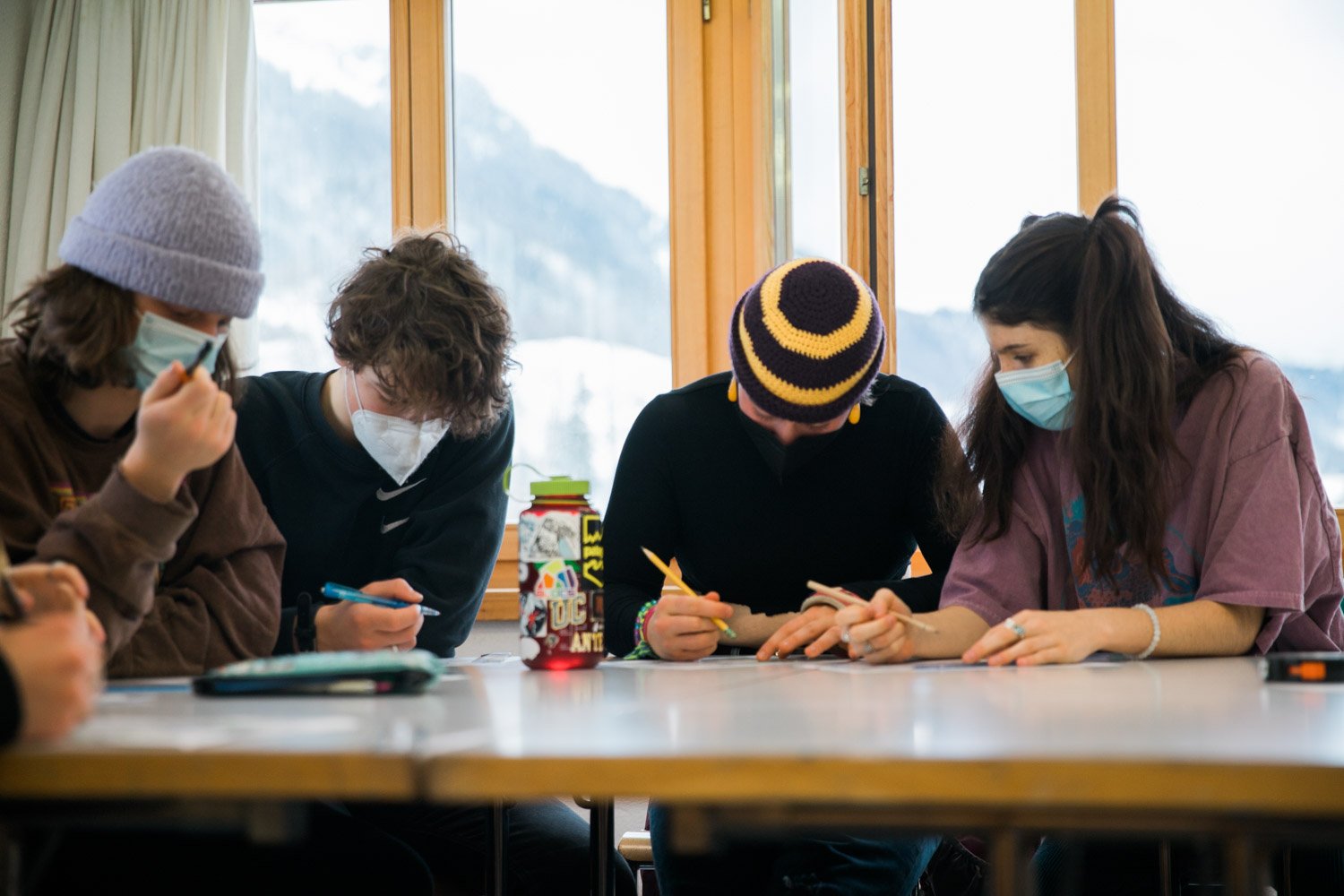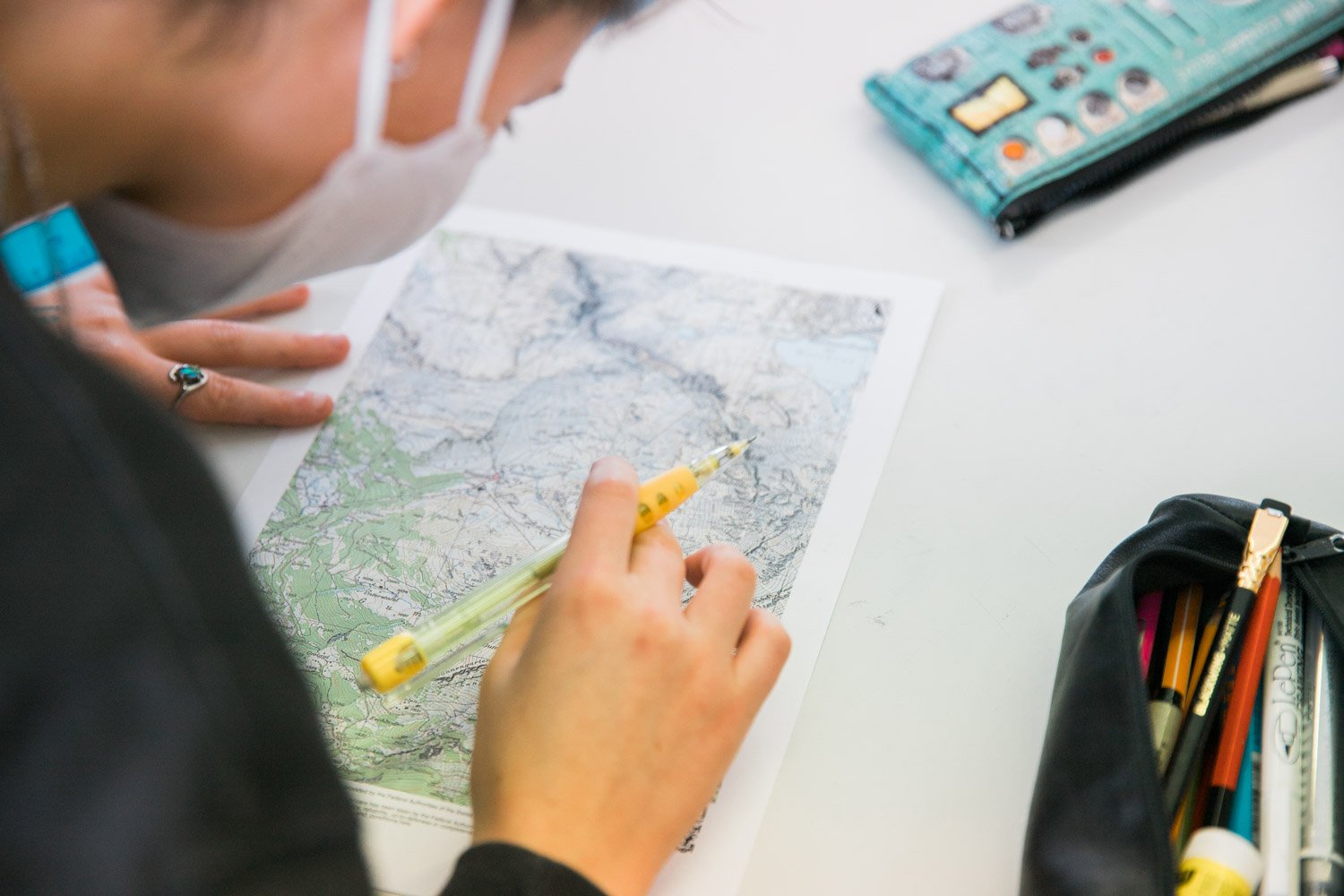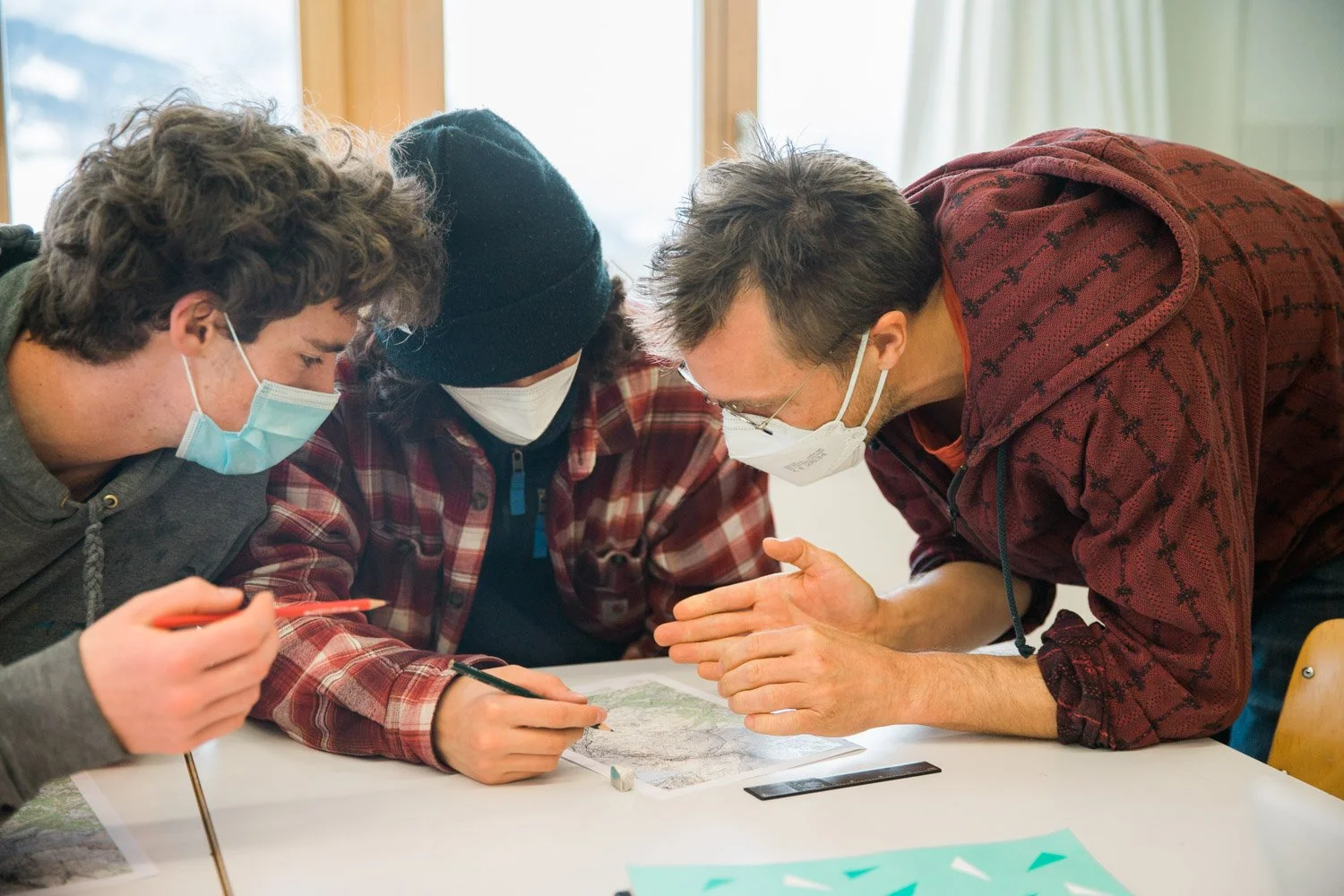What is Experiential Learning, and how does it benefit students?
At the Ecole d’Humanité, a progressive international boarding school in Switzerland, Ben and his class of 13 high school students are donning their warm jackets and lacing their hiking boots as they prepare to leave the classroom and enter the forest equipped with self-made clinometers and sample collection tools.
Ben leads his students outside the school grounds and into the winter quiet of an alpine forest. Ben, a proponent of progressive education and experiential teaching, is creating a carefully planned experience designed to practice and deepen knowledge and develop cross-curricular skills.
Ben and his class spread out into the woods, each student selecting an area of forest to study, with the goal to evaluate the health and biodiversity of a local wooded area. Together, they apply their knowledge of dendrology, biology, ecology, trigonometry, and random sampling methods to make inferences about the health of the forest.
Ben’s students are excited, engaged, invested, and motivated. They are engaged in a meaningful experience where deep learning takes place. This is experiential learning in action.
What is Experiential Learning?
Experiential learning, a theory developed by David A. Kolb, rests on the idea that learning happens best through the interaction between the learner and the environment. Deep learning can happen when the student engages with the subject matter - experiencing, feeling, reflecting, analyzing and applying knowledge to real world situations.
Educators purposely engage learners with direct experiences designed to increase knowledge, develop skills, and clarify values. The focus of Experiential Learning is on process, not outcomes - while the acquisition of knowledge and the development of skills are a natural outflow of the process,
The Experiential Learning Cycle
Kolb identifies four stages of the experiential learning process:
Concrete Learning
Learners engage with their environment, learning something brand new, or experiencing something familiar in a new way.
In Ben’s Forests class, students venture out into the woods, an environment both familiar to and beloved by the students, and see it anew through the lens of ecology.
Reflective Observation
Students spend time thinking about their observations, asking questions, and reflecting on the meaning of their experiences.
Ben’s students might identify a gap in their understanding of trigonometry, or they might wonder what the presence of fruiting mushrooms could tell us about a particular forest environment. They reflect on their experiences, opening the doors for deeper learning.
Abstract Conceptualization
In this stage, learners go deeper. They form new ideas, draw new conclusions, or adjust their thinking based on their reflections.
Ben’s students examine their data, they think about what they have seen in the forests, what inferences they might draw, what questions come up. What does it mean to discover that there are few trees over 20 meters in height in the forest sample? Through experience, they engage with their material on a deeper level.
Active Experimentation
Finally, the learner applies their knowledge to the world around them, making observations, and discovering if adjustments to their understanding are required. This is a process that can be ongoing - continuing long after the students leave the classroom.
Ben is planning a large project - an opportunity to apply their knowledge and deepen cross-curricular skills. They will be studying a proposed site for residential development in our local area. Using the skills and knowledge they have acquired - ecology, biology, forestry, watersheds - they will draw conclusions on the impacts of this proposed development project. As the students work through this project, they will apply their skills and knowledge to a real world problem.
What are the benefits of experiential teaching?
Experiential Teaching Brings the Subject Alive
Students interact directly with their subject matter, engaging socially, emotionally, or even physically with the material.
A subject that could be dry, or dull becomes engaging when students see real world applications.
Experiential Teaching Improves Motivation
Through experiencing and interacting with a subject, students are involved and integrated in the learning process. they see the bigger picture and understand the material’s relevance. This increases the intrinsic motivation to learn.
Students experience more ownership of the learning process which also improves motivation.
Experiential teaching Improves Soft Skills
Experiential Learning requires that students become more creative and innovative when they must look for ways to solve problems and apply their knowledge to real situations.
Learning experiences often happen in groups. Students develop communication skills and the ability to collaborate.
Experiential Teaching promotes Cross-Curricular Skills
A well-crafted experience provides opportunities to develop a multitude of skills. In Ben’s class, biology intersects with trigonometry, forestry, conservation, and even English. Students learn scientific methodology; they write papers, learn formatting, and even practice essay writing skills.
Experiential Teaching Improves Learning Outcomes + Promotes Deep Learning
Practicing a skill, for example, calculating the height of a tree, strengthens neural pathways and solidifies learning more deeply.
Engagement with a subject increases motivation which positively impacts learning outcomes
Knowledge retention is greatly improved through experiential learning
Experiential Learning And progressive education at the Ecole d’Humanité
Experiential learning is an important part of the Ecole approach to education. Beyond forestry and ecology, our students learn about Physics as they run experiments on the ski hill. Through a visit to a local dam project they learn about force, thermodynamics, and even renewable energy. Experiences are integrated into most of our classes, creating an engaging and motivating learning environment.
Want to know more about how we approach teaching and learning? Get in touch!
